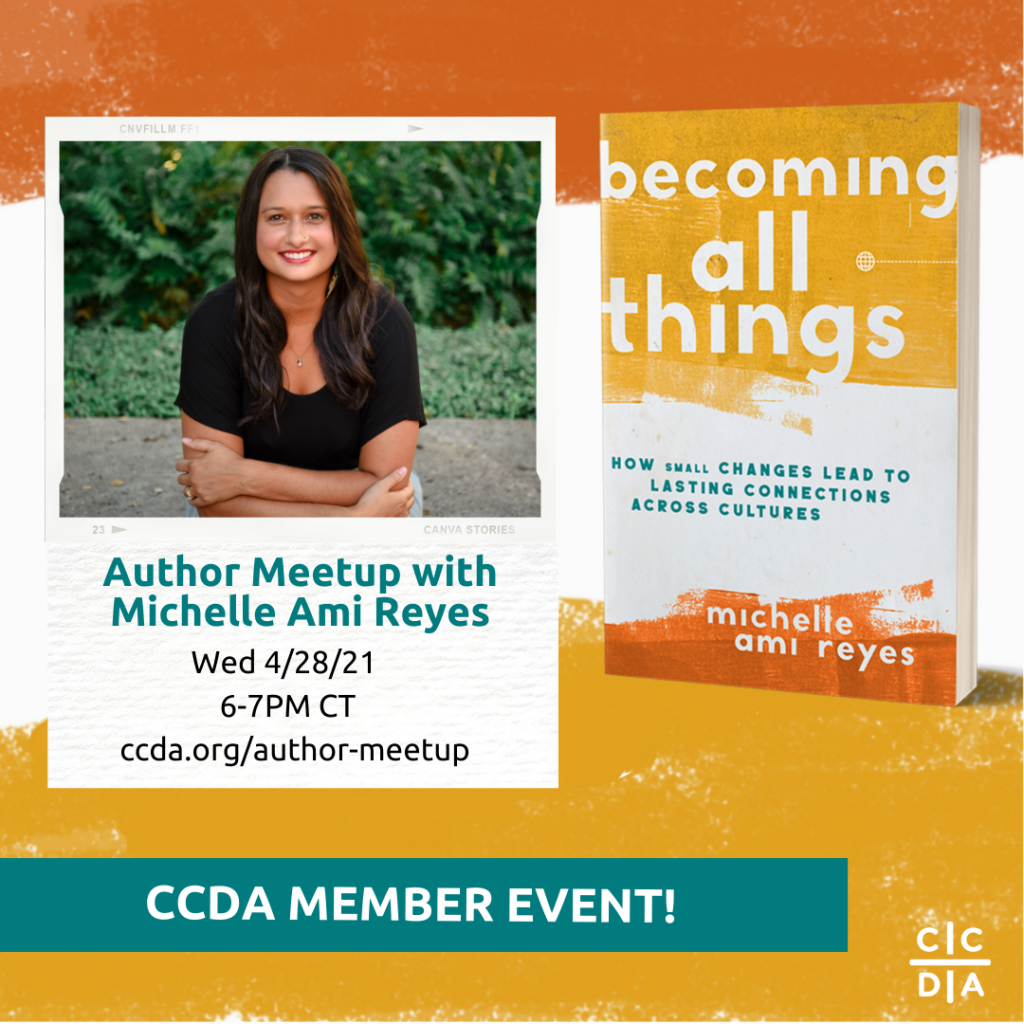An Excerpt from Becoming All Things
by: Michelle Ami Reyes
I know it’s hard to embrace someone else’s cultural values. Whether it’s their noise level, the smell and look of their food, their communal gatherings, the way they look at you, talk, dress, or act, another person’s way of life often feels like a disruption. Their actions and words can annoy us or make us feel uncomfortable, and more often than not our response is to avoid the person, the situation, or both. But this kind of cultural inflexibility can cause real damage. Friendships are lost, trauma is inflicted, lives are marginalized, even lost. The stakes are high.
I know you are reading this because you already recognize that a corrective is in order. Most of us would agree that we don’t want to live in a world of white privilege, a world where white culture is the invisible default determining what is acceptable and unacceptable in society. We say that we value diversity and human flourishing, but not being willing to embrace or appreciate other people’s cultural identities—their ethnicity and their unique story—in our communities, workforce, places of worship, or even our own families will only perpetuate and reinforce this invisible default standard.
When we choose to confront cultural differences with more rules, we fall into the trap of cultural policing. Natural hair types are scrutinized and legislated by unwritten (or sometimes written) American policies. African American women are called unprofessional or even refused job appointments if they don’t conform to the straight-hair standard. There are demands that minorities and immigrants only speak English and that “formal English” should be spoken instead of slang, Ebonics, and other variations of the English language. People refuse to go to someone’s house because it “smells,” or they tell their housemate what foods she can or cannot cook in their apartment so the place won’t wreak of spices. There’s a low tolerance for things like head scarves, turbans, and other “foreign” clothing items. Brown-skinned people are asked—in their own neighborhoods—if they live there. Neighbors make complaints that the family next door has too many people in a house, or that their guests are all “clogging up” the street. Cultural differences make us uncomfortable so we decide they are wrong and must be stopped.
Different cultures coming together will always create tension. We value different things, and we express our values differently too. But a fear of other people’s cultures causes real and detrimental effects. As long as we see someone else’s way of life as inappropriate or wrong, we will focus our energy on controlling how the other person talks, walks, laughs, thinks, and behaves. The more we dislike what someone else is doing, the more we will define our society and the spaces we inhabit by notions of superiority and isolationism rather than tolerance, acceptance, and openness. The resistance to cultural change, even change to cultural values, is part of an effort to control our country’s social fabric through the exclusion and intimidation of people outside the center. That is something Christians should resist, as it is the antithesis to biblical notions of racial solidarity where people of all cultures and ethnicities are to be welcomed and celebrated for who they are. Resistance to cultural change, in contrast, is the gateway to xenophobia, racism, and nativism.
Loving our neighbors means learning to love people different than us. We need to become comfortable with alternative ways of doing things and ask ourselves, “How much cultural discomfort am I willing bear?” We will not even know how to answer this question unless we are willing to sit in our own discomfort and begin listening to and appreciating our fellow human beings.
Learn more about Michelle & her heart behind the book at our author meetup! Details below:


